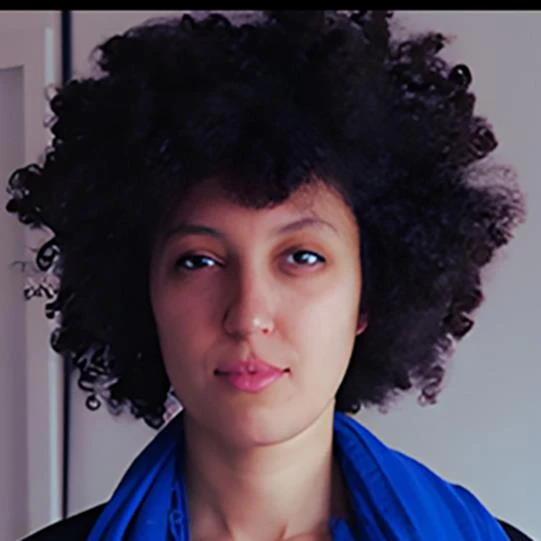Exploring the silent transmission of generational trauma, the film reconnects with a cultural heritage fragmented by the colonisation of Algeria, the war and its aftermath, and exile in France. Ancestral Kabyle songs bring a liberating dimension to this quest, re-establishing the links broken by history.
The film begins with a haunting nightmare characterised by the sounds of helicopters, dark animation, and archival footage of a French army helicopter over my mother’s village during the Algerian War in 1959. On October 17, 2020, France imposed a curfew, echoing the tragic events of October 17, 1961, when 200 Algerians were drowned in the Seine during a peaceful protest. This curfew rekindles the transgenerational trauma of persecution. I have come to realise that many women also share these nightmares of persecution, rooted in what our grandmothers endured during the Algerian War of Liberation.
When I talk to my grandmothers, I understand that these nightmares reflect a violent reality experienced by women throughout the country. I am committed to recording this history and memory before it fades completely. Most of the civilians were traumatised by the tactics used by the French army to terrorise the population and prevent them from supporting the revolution. Amid the misty mountains of Kabylia, I see that some of these women have discovered ways to cope with their trauma— either by climbing the mountains, which signifies joining the fight and the resistance in Kabyle language, or by singing Achewiq, our traditional songs, to heal. The past of resistance and the healing power of our cultural ancestral chants intertwine, guiding us into the future
When I talk to my grandmothers, I understand that these nightmares reflect a violent reality experienced by women throughout the country. I am committed to recording this history and memory before it fades completely. Most of the civilians were traumatised by the tactics used by the French army to terrorise the population and prevent them from supporting the revolution. Amid the misty mountains of Kabylia, I see that some of these women have discovered ways to cope with their trauma— either by climbing the mountains, which signifies joining the fight and the resistance in Kabyle language, or by singing Achewiq, our traditional songs, to heal. The past of resistance and the healing power of our cultural ancestral chants intertwine, guiding us into the future
